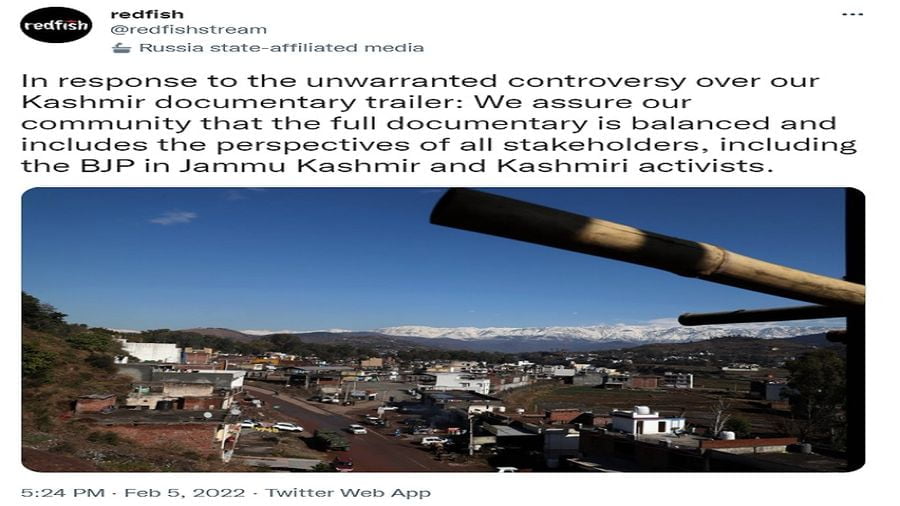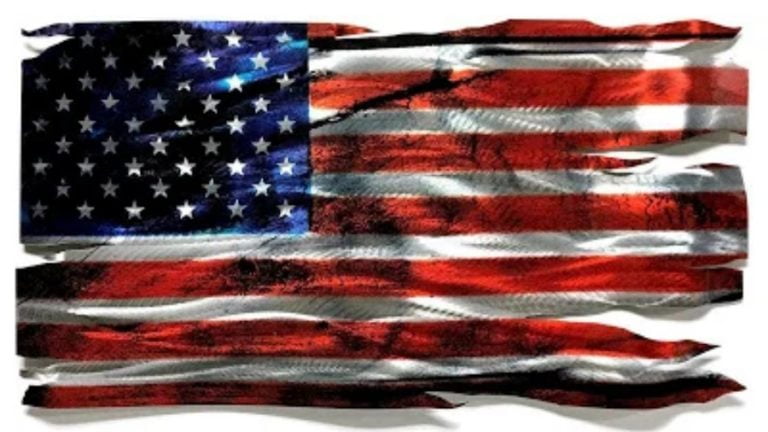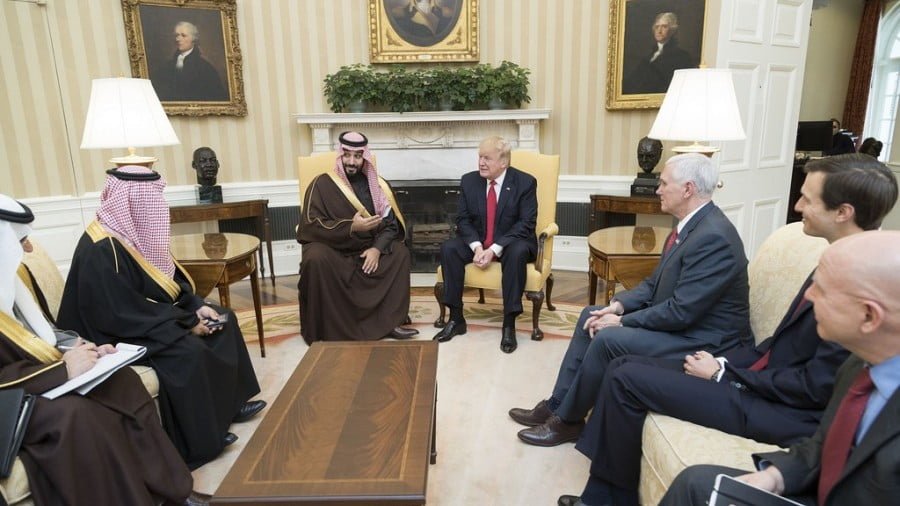Additional Insight Into Ruptly-Funded Redfish’s Kashmir Video Scandal
It’s understandable why many Indians are upset and want something visible to be done to right what they sincerely regard as a wrong, but it’s important to place trust in their world-class diplomats to resolve this scandal however they feel is best for their country’s grand strategic interests.
Digital content creator redfish (stylized with a lower-case r), which is indirectly funded by the Russian state through RT’s Ruptly, is at the center of a scandal surrounding its upcoming Kashmir video. The author extensively explained why this platform shouldn’t be regarded as reflecting its state financier’s official position on anything in his piece about how “The Kashmir Video Scandal Proves That Ruptly-Financed Redfish Isn’t ‘Kremlin-Controlled’”. This should be read by anyone who’s interested before proceeding with the rest of the present analysis since it builds upon the prior one.
To summarize, publicly financed (regardless of the degree thereof) doesn’t automatically equate to “state-run”, with even much more directly financed RT openly contradicting their state financier’s official policy towards its comprehensive strategic partners in China in ways that go far and beyond all manner of “political correctness”. For instance, some RT op-eds accused China of deliberately spreading COVID across the world, recognized Taiwan as a “country”, and compared Mao to Hitler.
Proceeding from these facts, it’s now time to share some additional insight into redfish’s Kashmir video scandal. News of its upcoming information product provoked a very angry reaction from Indians on Twitter who regard that issue as very emotive and highly sensitive. What seems to have upset them the most isn’t so much that promotional clip’s implied criticism of their government’s stance towards Kashmir, but that the video is being released by what Twitter labels “Russia state-affiliated media”.
This is a misleading label since redfish is only indirectly funded by the Russian state but certainly isn’t controlled by it as proven in the author’s analysis that was cited in the opening paragraph. Nevertheless, the average Twitter user naturally wouldn’t be aware of that, instead trusting Twitter to tell them the truth about that site’s relationship to the Kremlin. That label conjures images of officials dictating content, editing it in accordance with state policy, and generally reflecting their government’s views.
That’s objectively not the case with redfish though since their own site proves that they contradict their state patron on several extremely sensitive issues as evidenced from the map shared under their “About Us” section. Those who are aware of Russia’s official policies would be shocked to see that the Serbian Autonomous Province of Kosovo & Metohija is labeled independently of Serbia itself as is Taiwan vis-à-vis China whereas Crimea is part of Ukraine while Abkhazia and South Ossetia are part of Georgia.
The official Russian position is that Kosovo and Taiwan are integral parts of Serbia and China respectively whereas Crimea is the same for their own country while the Kremlin recognizes Abkhazia and South Ossetia as independent of Georgia. Redfish’s contradiction of its state patron’s policies on these very sensitive issues pairs with its seemingly critical take towards the Indian position on Kashmir that the Kremlin unwaveringly supported for decades to prove that this site is truly editorially independent.
That raises the question of why Russia would indirectly fund a project such as redfish, which the site answered as follows: “What does Ruptly gain from this relationship with us you might ask? Utterly unique and original content, reports that captivate and show the truth. Our team has the experience and the track record of getting to places no-one else can – or cares to. Because that is what many of us have done, for years, as part of Ruptly or RT’s award-winning journalist teams, we know we can deliver.”
To be absolutely clear, what redfish considers to be the truth – Kosovo and Taiwan being treated separately from Serbia and China, Crimea being part of Ukraine just like Abkhazia and South Ossetia are part of Georgia, and their seemingly critical stance towards the Indian government’s position on Kashmir – isn’t shared by their state patron. The Kremlin presumably continues funding redfish in spite of its undeniable editorial independence because RT relies on some of their content to reach new audiences.
A quick glance at redfish’s prior work reveals that they’re a leftist-progressive platform. Their information products are clearly designed to appeal to that type of people. Since other more directly publicly financed media outlets like RT and Sputnik usually (but importantly not always) tend to produce content that more closely aligns with their state financier’s official policies due to their own independent editorial decisions, it can be said that Russia is balancing out its audience engagement.
This approach can be described as driven by the desire to generate a “diversity of discourse” through the creation of a so-called “information buffet” in order to maximize audience reach and engagement since everyone can “pick and choose” what content they “consume”. It’s an informal policy that obviously isn’t without certain “narrative risks” as proven by redfish’s Kashmir video scandal, but it nevertheless appears to be the Russian state’s unofficial motivation for funding such projects.
Innocent confusion occurs among average members of their audience whenever they naively interpret Twitter’s misleading labels of some connection or the other to the Russian state as the full truth whenever one of these sites produces something that’s objectively controversial like redfish’s Kashmir video or RT’s numerous op-eds that contradict all manner of “political correctness” towards China. People are manipulated by Twitter into assuming that all of their products reflect official Russian policy.
This actually means that those users who reacted to redfish’s upcoming Kashmir video by making certain remarks against the Russian government are actually victims of a very cunning Western information warfare policy that misled them into blaming the Kremlin for something that one of its editorially independent associated sites produced. No matter how one feels about the content of redfish’s upcoming video, it’s inaccurate to direct one’s anger towards the Russian government.
Having clarified that, it’s also understandable why many Indians would be upset by redfish’s video just like many Chinese must have been furious when they read the three op-eds from RT that the author cited in his analysis that was hyperlinked to at the beginning of the present piece. Both examples not only contradict Russia’s official policies towards its top two strategic partners in the world but also come amidst its comprehensive intensification of ties with both.
The author earlier explained “China’s & India’s Interplay Of Importance For Russian Grand Strategy” that should also be read those who are interested in the details of how Moscow balances Beijing and New Delhi. This admittedly very sensitive subject has either been improperly understood by some observers or even at times deliberately misportrayed by them for self-interested reasons, which is why it’s crucial for the audience to better understand the intricacies of Russia’s 21st-century balancing act.
From the Indian perspective, redfish’s Kashmir video scandal came at an extremely surprising time. That video was obviously timed to coincide with what some activists consider to be Kashmir Solidarity Day, whose advocates oppose the Indian government’s position on this issue. That’s already concerning enough from their viewpoint, but it coincidentally also came right when President Putin met with President Xi in Beijing, prompting speculation that this video was meant as a sign of fealty to China.
The position of the People’s Republic towards this sensitive issue closely aligns with its Pakistani partners’, who just commemorated what they consider to be Kashmir Solidarity Day, so the optics are even more sensitive for many Indians than non-Indian observers might have thought at first glance. There’s also a weaponized information warfare narrative that’s crept into the discourse over the years conspiratorially speculating that Russia is becoming China’s “junior partner” and “doing its bidding”.
That’s objectively not true whatsoever at all as the author’s cited piece three paragraphs above about China’s and India’s balanced importance for Russian grand strategy proves but it nevertheless appeals to those in the second-mentioned country who haven’t been informed of the Kremlin’s informal policy towards those two Great Powers. As a constructive critique, Russia could have done a better job explaining this and its financed platforms’ editorial independence to the Indian public ahead of time.
Be that as it may, redfish’s Kashmir video scandal can serve as a belated learning opportunity whereby the Kremlin hopefully comes to realize that the admittedly lackluster articulation of its policies inadvertently contributed to confusion among many Indians. As for those who were upset, hopefully they’ll realize that they were manipulated by Twitter’s misleading label to wrongly direct their anger against the Russian government instead of keeping it concentrated on redfish.
About that, it’s timely at this point to share some well-intended suggestions for those Indian users who were angry about what happened. Now that they’re aware that redfish not only doesn’t reflect the official Russian position on many sensitive issues but also openly defies it as proven by the provocative map on their website, it’s important for them to absolve the Kremlin of any connection to this scandal. No one needs to apologize for what they may have already written, but they shouldn’t do it again.
Rather, it would be much more constructive from the perspective of their government’s stance towards Kashmir to share links under redfish’s tweet directing others to sources where they can learn more about the official Indian position. Non-Indians who aren’t all that aware of this issue might not understand the very strong reaction among many Indian users. Instead of them reading condemnations of the Russian government, it would be more useful for them to read about the Indian stance.
The elephant in the room that’s on everyone’s mind is how this scandal will ultimately be resolved. Some Indian users have requested that their government and/or the Russian one formally address what happened, even going as far as to potentially force redfish to not publish their upcoming video. While it remains to be seen what the official reaction to this will be from either side, if any, a few words should be said about what might come next.
President Putin’s visit to India in early December was a global geostrategic game-changer that resolved the uncertainty over the future of their relations following the twists and turns in their ties across the past few years. The resultant 99-paragraph reaffirmed strategic partnership pact was interpreted by the author as signaling these Great Powers’ joint desire to unofficially assemble a new Non-Aligned Movement (“Neo-NAM”) for creating a third pole of influence in the bi-multipolar world order.
India’s abstention from the US’ UNSC vote on discussing Ukraine was appreciated by Russia, whose new ambassador to that country just gave a detailed interview where he shared his vision of India emerging as an independent pole of power in the world and especially the Asia-Pacific. Furthermore, India defied the US’ CAATSA sanctions threats to go through with its purchase of Russia’s S-400 air defense systems, and both will soon export jointly produced BrahMos supersonic cruise missiles to the Philippines.
These recent developments confirm the mutually beneficial trust-based closeness of Russian-Indian relations so it’s extremely unlikely that either would want to let redfish’s Kashmir video scandal spoil their globally game-changing geostrategic coordination. With this in mind, Russian and Indian diplomats might discretely discuss this issue behind closed doors, with the former informing their counterparts of their unofficial information policy as the author explained it earlier in this present piece.
Still, there are those who hope that this scandal will become much more public, especially after the Russian Embassy in India published a statement in early January “On anti-Russian publications in Indian media”. They hope for a so-called “quid pro quo” because they’re offended by redfish’s Kashmir video. Everyone’s entitled to their opinion, including about the most optimal way to resolve this scandal, and it’s with this in mind that the author will now explain why that proposal is counterproductive.
For starters, while the issues of Kashmir and Ukraine are extremely sensitive for India and Russia respectively, the latter is arguably of much more global concern at the moment since one wrong move in the undeclared US–provoked missile crisis in Europe could lead to World War III. Second, redfish’s reach is much less than leading Indian media’s. Third, that Ruptly-financed platform focuses on engagement with foreign (as in, non-Russian) audiences, mostly Western ones.
While most Indians would prefer for videos like redfish’s not to be aired at all, the latter’s upcoming one about Kashmir likely won’t reach many Russians and thus has almost zero chance of shaping that public’s views towards this issue. By contrast, leading Indian media’s anti-Russian publications can influence hundreds of millions of people in Russia’s special and privileged strategic partner. In other words, redfish’s product complicates the Indian narrative on Kashmir, but not relations with Russia.
Leading Indian media’s anti-Russian publications, however, could indeed obviously complicate bilateral relations, which is why the Russian Embassy released its statement. Those who want the Indian Embassy in Moscow to do the same regarding redfish are inadvertently giving that site much more credit than it deserves by equating it to leading Indian media in terms of reach and influence when that’s objectively not the case. Put another way, a public Indian statement would actually be a promotion for redfish.
Those who are angry about its upcoming video would probably prefer not to make it infamous to the point where those who hadn’t heard about it before decide to watch the film out of curiosity to see what this scandal is all about. From the perspective of the official Indian stance towards Kashmir, that could be counterproductive because it’ll over-amplify views that they don’t have any interest in promoting. For as difficult as it might be for some to accept, it might be better to suppress this scandal.
Russian-Indian relations are much too important in terms of the global geostrategic picture for an indirectly Kremlin-funded platform who few had ever heard of up until this point complicating their ties after releasing a scandalous video as a result of their objectively independent editorial decision that has nothing to do with their state financiers. Those who are upset would do better sharing sources to their side’s official stance on this issue under redfish’s tweet instead of condemning the Russian government.
They also shouldn’t urge their government to officially respond to this incident since doing so risks drawing attention to the same views that their side clearly doesn’t want to promote across the world. It’s understandable why many Indians are upset and want something visible to be done to right what they sincerely regard as a wrong, but it’s important to place trust in their world-class diplomats to resolve this scandal however they feel is best for their country’s grand strategic interests.







